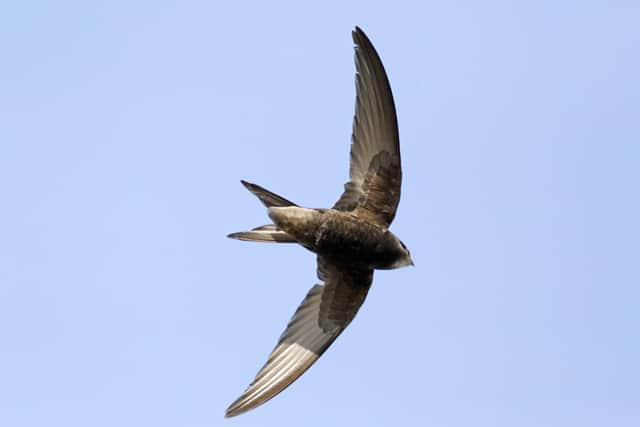Bird species decline across UK and Europe a result of pesticide increase, four-decade study finds
The main cause for a decline in bird species across the UK and Europe has been an increased use in pesticides on farmland, a study has found.
Using data from 28 countries across a 37-year period, researchers found common bird species had shown a general decline of 25 per cent between 1980 to 2016.
Advertisement
Hide AdAdvertisement
Hide AdFarmland species have more than halved in this period, with woodland birds declining by 18 per cent, urban dwellers by 28 per cent, northern, cold-preferring birds by 40 per cent and southern, warm-preferring birds by 17 per cent.


Suella Braverman's 'train fruit pickers in UK to cut migration' comment branded 'naive' by Scotland farming industry
The collaborative study, published in the journal PNAS, found the use of pesticides and fertilisers during intensification of modern farming practices has led to the decline of many populations.
Birds that rely on insects for food, such as the swift, yellow wagtail and spotted flycatcher, were the worst off.
Richard Gregory, lead author for the RSPB, said: “While many studies have tried to figure out what has driven bird declines in the UK and Europe, this is the first to look at the major, man-made drivers in one go, using the best data available.”
He said the results were “compelling” and showed “what must be done to turn things around”.
Researchers behind the study said there was also a direct relationships between declines in bird populations and other human pressures such as reduced forest cover, urbanisation and higher temperatures because of climate change.
Data from the UK came from the BTO/JNCC/RSPB Breeding Bird Survey and its predecessor the Common Birds Census, which 8,500 volunteers contributed to over nearly 30 years.
James Heywood, national organiser for the Breeding Bird Survey, said the study highlighted how little woodland the UK held compared to neighbouring countries on the continent.
Advertisement
Hide AdAdvertisement
Hide Ad“That said, the study makes clear that a simple increase in forest cover can mask other changes, particularly in the quality and nature of forests; the planting of managed forests won’t produce the same benefits for birds as old-growth forests or ancient woodlands, for example,” he said. “This is very much a problem that we are facing within the UK.”
Vicki Swales, head of land use at RSPB Scotland, said the research should “inform environmental and agricultural policy development right across the continent”.
She said while Scotland was also seeing a decline in some bird species, the trend was not as stark as in other parts of the UK.
This may be down to Scotland having a high proportion of rough grazing, she said, and a retention of more mixed farming practices, which means the area subject to more intensive practices is smaller. Scotland has also seen nitrogen use decline from its peak in the early 1990s.
The RSPB said the study highlighted the need for nature-friendly farming to become the norm and for governments to support farmers in making the switch while reducing the use of pesticides.
Many farmers across the UK are already doing this, the charity said, and are producing healthy food and profits while meeting climate change targets.
Ms Swales added: “We haven’t a hope of tackling the nature and climate emergency without farmers, but they need the right policies and support in place.”
Comments
Want to join the conversation? Please or to comment on this article.